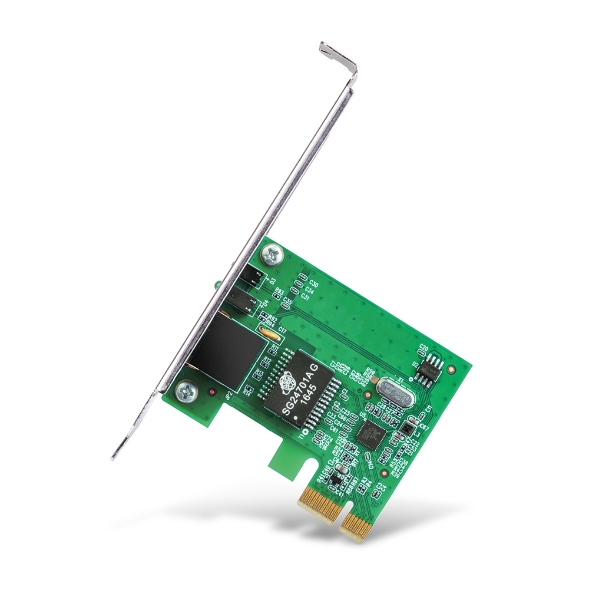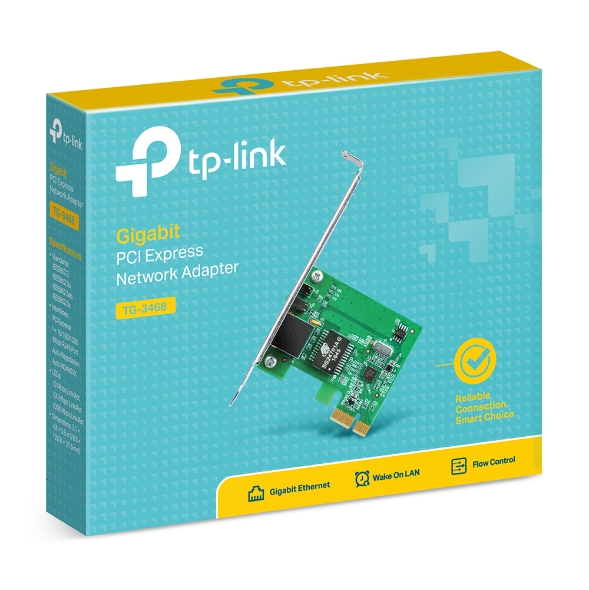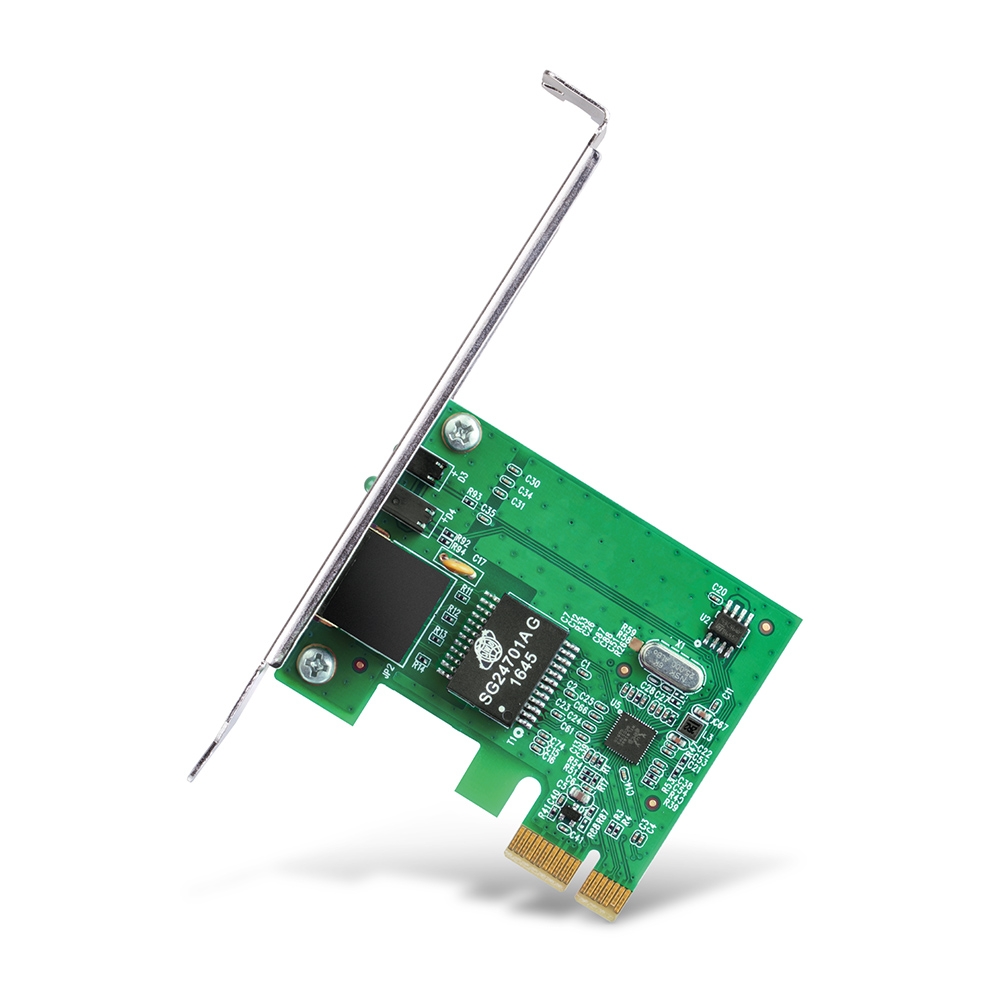TG-3468
Gigabit PCI Express Network Adapter
- 10/100/1000Mbps PCIe Adapter
- 32-bit PCIe interface, saving the finite chassis space
- Wake-on-LAN, convenient to manage over LAN
Gigabit PCI Express
Network Adapter
TG-3468
-
Operating System
Supports operating systems include Windows 10/8.1/8/7/Vista/XP
-
Low-Profile Bracket
In addition to standard bracket, low-profile bracket is also provided for mini tower computer case
-
Wake On LAN
Remotely power on/off your computer with WOL, good for centralized management
| HARDWARE FEATURES | |
|---|---|
| Standards and Protocols | IEEE 802.3, 802.3u, 802.3ab, 802.3x, 802.1q, 802.1p, CSMA/CD, TCP/IP |
| Interface | 32-bit PCI Express 1 10/100/1000Mbps RJ45 port |
| Network Media | 10BASE-T: UTP category 3, 4, 5 cable (maximum 100m) EIA/TIA-568 100Ω STP (maximum 100m) 100BASE-TX: UTP category 5, 5e cable (maximum 100m) EIA/TIA-568 100Ω STP (maximum 100m) 1000Base-T: UTP category 5, 5e cable (maximum 100m) |
| LED | Status |
| Wireless Standards | IEEE802.3, IEEE802.3u, IEEE802.3ab, IEEE802.3x |
| Data Rates | 10/100/1000Mbps for Half-Duplex mode 20/200/2000Mbps for Full-Duplex mode |
| LED Indicator | 1000Mbps Link/Act, 100Mbps Link/Act, 10Mbps Link/Act |
| Dimensions | 3.1 × 4.8 × 0.8 in (78.5 × 120.8 × 21.5mm) |
| Flow Control | IEEE 802.3x Flow Control (Full-Duplex) |
| OTHERS | |
|---|---|
| Certification | CE, FCC, RoHS |
| Package Contents | Gigabit PCI Express Network Adapter TG-3468Resource CDQuick Installation GuideLow-Profile Bracket |
| System Requirements | Windows 10(32/64bits), Windows 8.1(32/64bits), Windows 8(32/64bits), Windows 7(32/64bits), Windows Vista(32/64bits), Windows XP |
| Environment | Operating Temperature: 0℃~40℃ (32℉~104℉) Storage Temperature: -40℃~70℃ (-40℉~158℉) Operating Humidity: 10%~90% non-condensing Storage Humidity: 5%~90% non-condensing |
*Maximum wireless signal rates are the physical rates derived from IEEE Standard 802.11 specifications. Actual wireless data throughput and wireless coverage are not guaranteed and will vary as a result of 1) environmental factors, including building materials, physical objects, and obstacles, 2) network conditions, including local interference, volume and density of traffic, product location, network complexity, and network overhead, and 3) AP limitations, including rated performance, location, connection quality, and AP condition.
*To ensure compatibility, you may need to update the adapter’s drivers after an OS update. You can find our latest drivers in the download center at tp-link.com/en/download-center.



